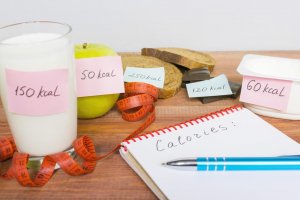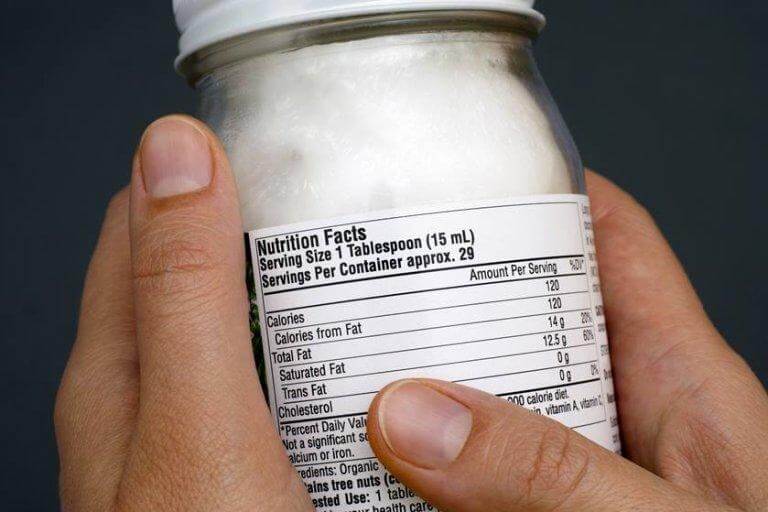Discover How Many Calories You Should Eat Per Day

Daily caloric intake is difficult to determine. Even if there are some general parameters, the truth is that age, weight, height, lifestyle and even gender affect the value we’re looking for.
This is the reason why today we’re going talk about the recommended daily caloric intake depending on the multiple factors already mentioned. In addition, we’ll reflect on why this functions this way and what impacts on the number of calories.
Daily Caloric Intake for Women

If we don’t make it and we fall short, that’s okay. Daily caloric intake isn’t that strict. In fact, calorie restriction can actually be positive for health in the medium and long term, according to an article published in the journal Current Diabetes Reports.
According to age and activity level
Below, we’ll describe schematically, according to age and activity level, the number of calories women should eat daily throughout their lifetime:
- 19-30 years old: Sedentary women should consume about 1600 to 2000 calories. The ones that do moderate activity should eat up to 2200 and women who do a lot of physical activity can eat up to 2400.
- 30-50 years old: Sedentary women should consume about 1800 to 2000 calories. If they do moderate activity, they can eat up to 200 calories more and if they exercise a lot they could add up to 400 more.
- 50 years old: From this age on, women should eat 1600 calories if they have a sedentary lifestyle, 1800 if they do some kind of moderate activity, and 2200 if they do a lot of exercise.
During pregnancy and lactation, you should add about 300 or 400 calories more daily. This way, we’d be in the range of recommended daily caloric intake.
Daily Caloric Intake for Men

Like women, men need a different daily caloric intake depending on their age and lifestyle. So just like we did with women, let’s see what number of calories men should consume depending on their situation.
- 19-30 years old: sedentary men should consume between 2000 and 2400 calories. If they do moderate activity, this figure rises to 2600 or 2800. If they exercise a lot, they can eat up to 3000 calories a day.
- 30-50 years old: sedentary men should consume about 2200 calories per day. However, if they do moderate activity, this figure rises to 2400 or 2600 and, if they do a lot of exercise, to 3000.
- 50 years old: From this age on, men should decrease their caloric intake and only eat up to 2000 calories if they’re sedentary, up to 2400 if they have a moderate lifestyle, and up to 2600 if they work out a lot.
As we’ve seen, as opposed to women’s daily caloric intake, men need a higher caloric intake. However, as we’ll see below, our goals are also important in determining our adequate caloric intake.
More Calories, Less Calories

For example, if I’m a 19-year-old woman who wants to lose weight, I can eat 2000 calories if I do moderate physical exercise every day. This way, I’m subtracting about 200 calories and that can benefit me.
If I want to gain weight, I need to eat more calories or not do any physical activity. For men, it’s exactly the same.
However, you must bear in mind that counting calories isn’t the only important thing. You must also analyze how healthy those calories are.
Quality calories
For example, if I’m a man and I want to gain muscle mass, increasing my caloric intake won’t be enough. Those calories will also have to be protein-rich and low-fat.
To ensure the genesis of lean tissue, a correct intake of essential amino acids is essential, according to a study published in 2018.
But what if I have a hard time gaining weight? I can increase the percentage of fat but paying attention to the type. Donuts and hamburgers aren’t recommended.
Instead, you should consume healthy fats like:
- Nuts.
- Eggs.
- Seeds.
- Legumes.
- Olives.
- Oily fish.
- Olive oil.
Take into account your energy needs when planning your diet
Do you already know what your daily caloric intake is? There are several apps that can help you discover how many calories you should eat and what percentage of carbohydrates, fats and proteins your food contains. These can be very useful.
By knowing approximately what your energy expenditure is, you can plan a diet according to your needs. This way you’ll be healthier and avoid unwanted weight gain.
All cited sources were thoroughly reviewed by our team to ensure their quality, reliability, currency, and validity. The bibliography of this article was considered reliable and of academic or scientific accuracy.
- Goldibi S., Daiber A., Korac B., Li H., et al., Health benefits of fasting and caloric restriction. Curr Diab Rep, 2017.
- Stokes T., Hector AJ., Morton RW., McGlory C., et al., Recent perspectives regarding the role of dietary protein for the promotion of muscle hypertrophy with resistance exercise training. Nutrients, 2018.
This text is provided for informational purposes only and does not replace consultation with a professional. If in doubt, consult your specialist.








